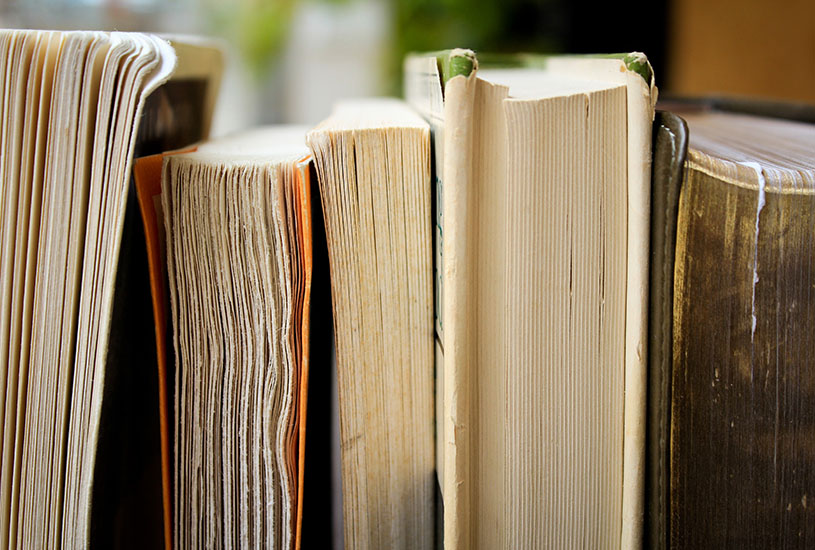Professor David McCooey, who has launched his fourth volume of poetry, has become a beacon in Geelong’s literary scene.
The recent debate about musician Bob Dylan receiving the Nobel Prize for Literature has put the spotlight on the nature of song writing and poetry.
Award-winning poet David McCooey, who is Professor of Writing and Literature at Deakin University’s Waurn Ponds campus, is delighted that people are taking such a strong interest in poetry and claims it plays a vital role in modern life.
“There is a lot of poetry in the world, often in ‘extra poetic’ contexts, such as in film, novels or the media, that many people are not consciously aware of,” he said.
[testimonial_text]Poetry is more marginal than films and novels, but if you look around, it is everywhere – at weddings, funerals, Anzac Day and stone monuments – and it turns up in surprising ways. In the film ‘Four Weddings and a Funeral,’ for instance, the WH Auden poem ‘Funeral Blues’ had a huge effect on many people.[/testimonial_text]
[testimonial_picture name=”Professor David McCooey” details=”Professor of Writing and Literature”]
 [/testimonial_picture]
[/testimonial_picture]Professor McCooey has just published a new volume of poetry himself, called “Star Struck,” that was launched at Paton Books in Newtown.
Originally from Perth, Prof McCooey came to Deakin in Geelong in 1995 after completing his PhD in Sydney. He has no plans of going elsewhere.
“I am committed to being part of Geelong’s literary scene,” he said.
“I have lived here for 21 years and I love it. There is a lot going on in the Bellarine Peninsula and Geelong, especially at Deakin. We punch above our weight in the Australian poetry scene. As well as myself, Deakin academics Maria Takolander, Cameron Lowe and Jo Langdon, who work or have worked at Deakin, are all successful poets.
“The Geelong Regional Libraries group is also an incredibly important part of the Geelong literary and cultural scene, as is their new annual ‘Word for Word’ festival, which Deakin sponsors. By contrast, it is very concerning to see that literature now only makes up 2.6 per cent of Federal funding of the Arts.”
Professor McCooey has written numerous essays, reviews, book chapters, four volumes of poetry and an album of audio poetry, called “Outside Broadcast.”
The new volume “Star Struck” contains four separate parts, with the first exploring his experience of serious illness. Three years ago, while only in his mid-40s, he suffered a major heart attack after a flu, which led to open heart surgery, followed by several months of poor health, recuperation – and a reassessment of his life and values.
Another group of poems in the collection brings together popular music and the ancient literary mode of the pastoral, where, among other things, Bob Dylan sings Virgil, Joni Mitchell reflects on life in Laurel Canyon, a lab monkey ponders the sound of music, and there is a bitter, surreal rewriting of ‘Down Under.’
The poem entitled “How to be a better Elvis,” reflects on the annual Elvis festival in Parkes, NSW, and the mythologising of Elvis, who, for fans, represents a golden age.
Professor McCooey says Australia has a vibrant poetry scene, although it is not huge.
“Social media is helpful, but it would always be nice to see more poetry books being sold. However, I think poetry performs well when it comes to literary awards and festivals and it has a vigorous role to play in public cultures,” he said.
“Australian poetry is very diverse. It is interested in being part of a wider public culture and contemporary national issues.
“This can be seen in some really interesting new Australian anthologies such as ‘Writing to the Wire,’ which is by and about asylum seekers, and ‘Contemporary Australian Feminist Poetry.’
“The arts are good for the country. There is very strong grass roots enthusiasm for the arts. What can’t you do with literature and the arts? It can lead you in all sorts of directions. The songwriter and performer Tim Minchin did an Arts degree at the University of Western Australia.
“Arts develops many skills, like creativity, the ability to critique, interpret and become culturally literate. The more you know, the more you can move through the world, and the more influence you have.”



